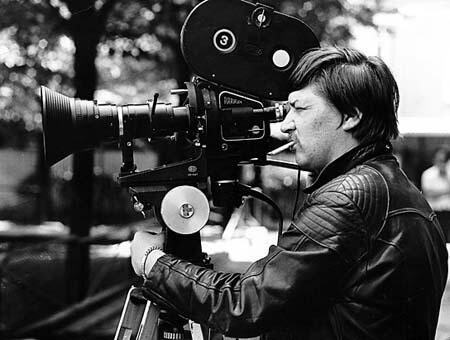Workshop “Visual History and Gender Relations in Fassbinder’s Work”

On December 6-7 European Humanities University (EHU) Center for German Studiesinvites to the workshop dedicated to German post-war transformation and critique of it in the cinema of the prominent German film director Rainer Werner Fassbinder.
The workshop is designed for participants from Belarus and Lithuania, who are students and practitioners of visual and gender studies as well as for citizens, who do wish to enlarge their knowledge about the German post-war transformation and Fassbinder’s critique of it. As a common basis the project starts with a short introduction and the screening of the epic film “Die Ehe der Maria Braun” in German with English subtitles. The analysis of this important Fassbinder film will serve as joint basis. In a following workshop we will discuss the film under the guidance of a specialist in semiotics, a cultural historian and a cultural exchange practitioner.
Workshop program:
December 6, 2016
5 pm – Introduction. Prof. Wolfgang Beilenhoff (Bochum/Berlin)
6 pm – Film Screening: “Die Ehe der Maria Braun” with English subtitles.
December 7, 2016
9.3o am-3.30 pm – Workshop with Prof. Almira Ousmanova (Vilnius), Dr. Felix Ackermann (Warsaw) and Detlef Gericke (Vilnius)
NB! The workshop activities will take place on EHU Campus (Valakupių g. 5, Vilnius) in room 213.
To take part in the workshop, please, kindly register via daivita.jackeviciene @ ehu.lt
The workshop is part of a project on family histories in the XXth century, which was initiated by the EHU Center of German Studies. Its aim is to analyze various viewpoints on the divided history of Germany, Lithuania and Belarus. A special focus in on the long term impact of war on societies in Central- and Eastern Europe. The project assumes, that various changing family and gender constellations can be used as empirical cases in order to better understand the difference between social destruction and social change. The particular function of the workshop led by Prof. Wolfang Beilenhoff, Prof. Almira Ousmanova, Detlef Gericke and Felix Ackermann in Vilnius, is to establish a historical understanding of Werner Fassbinder’s film works as source to German history, but also to frame it in a broader context of post-war art history.
The workshop is organized in cooperation with Goethe-Institut Litauen and kind support of the German Embassy in Vilnius with funding of the German Federal Foreign Office.